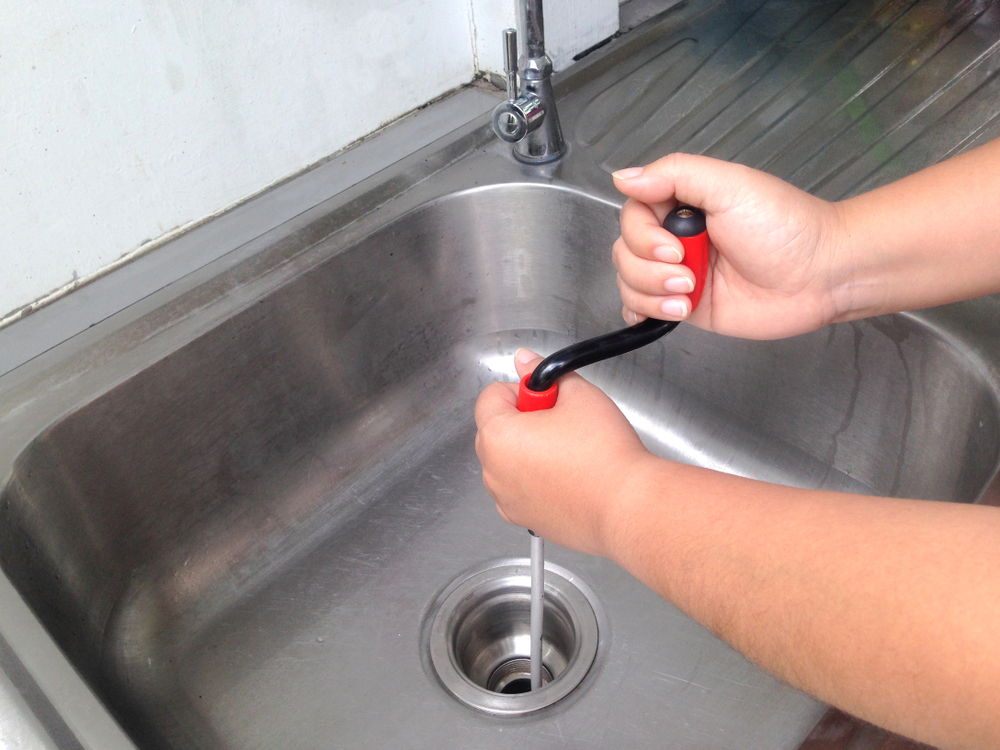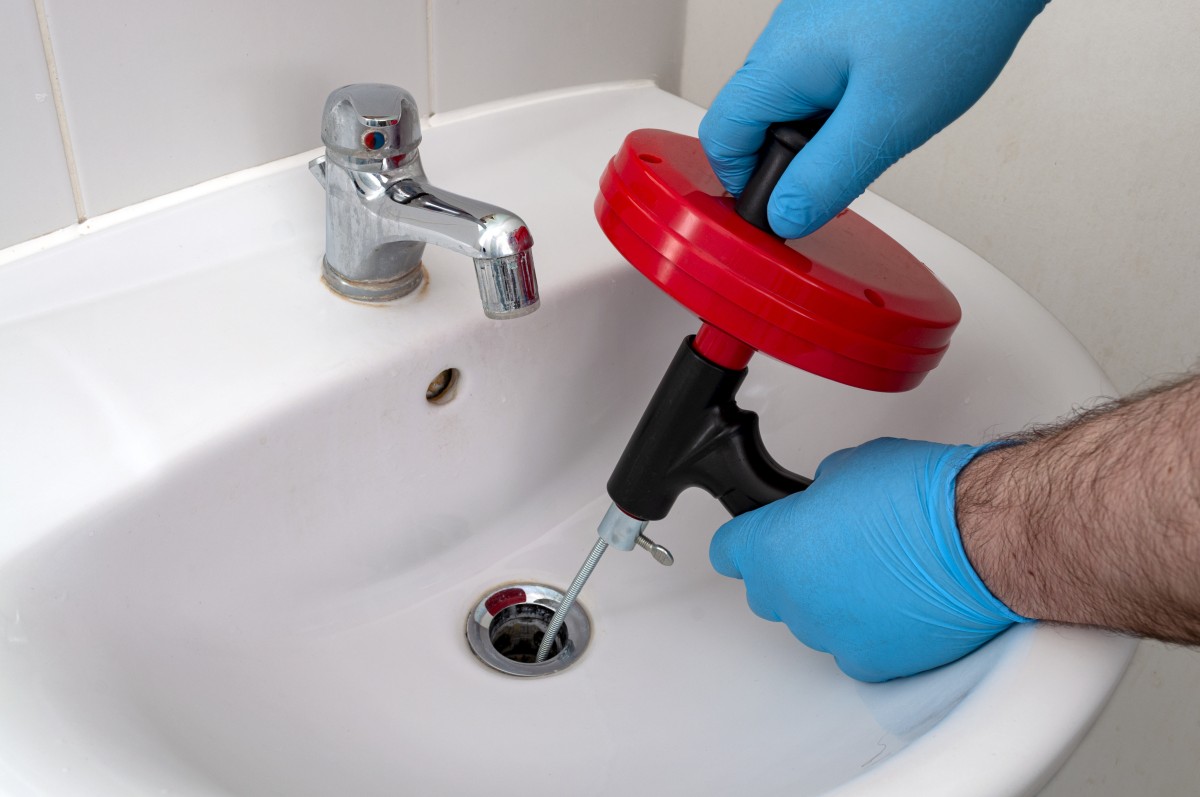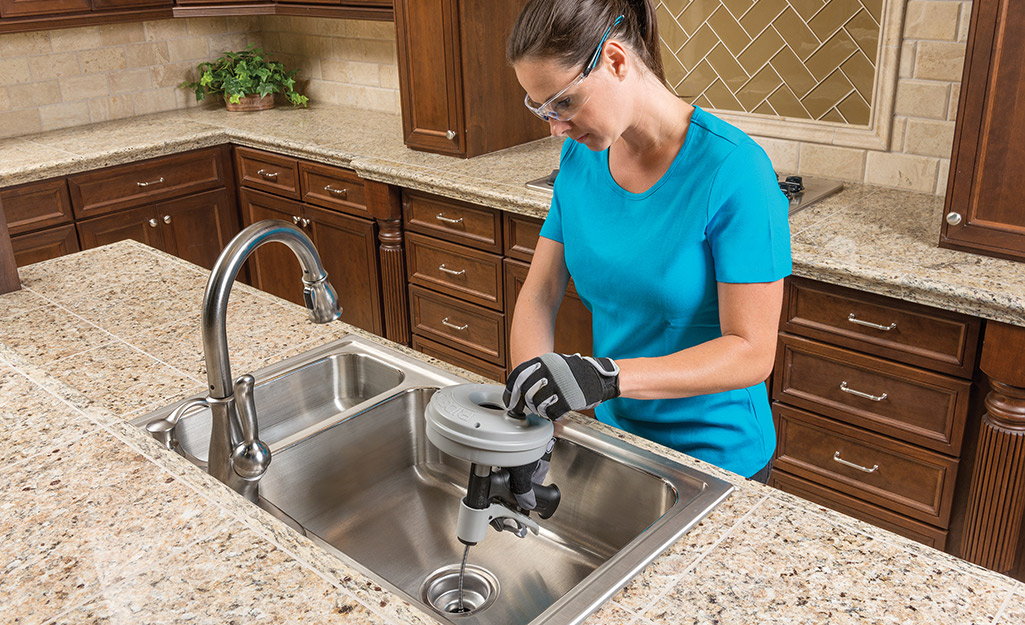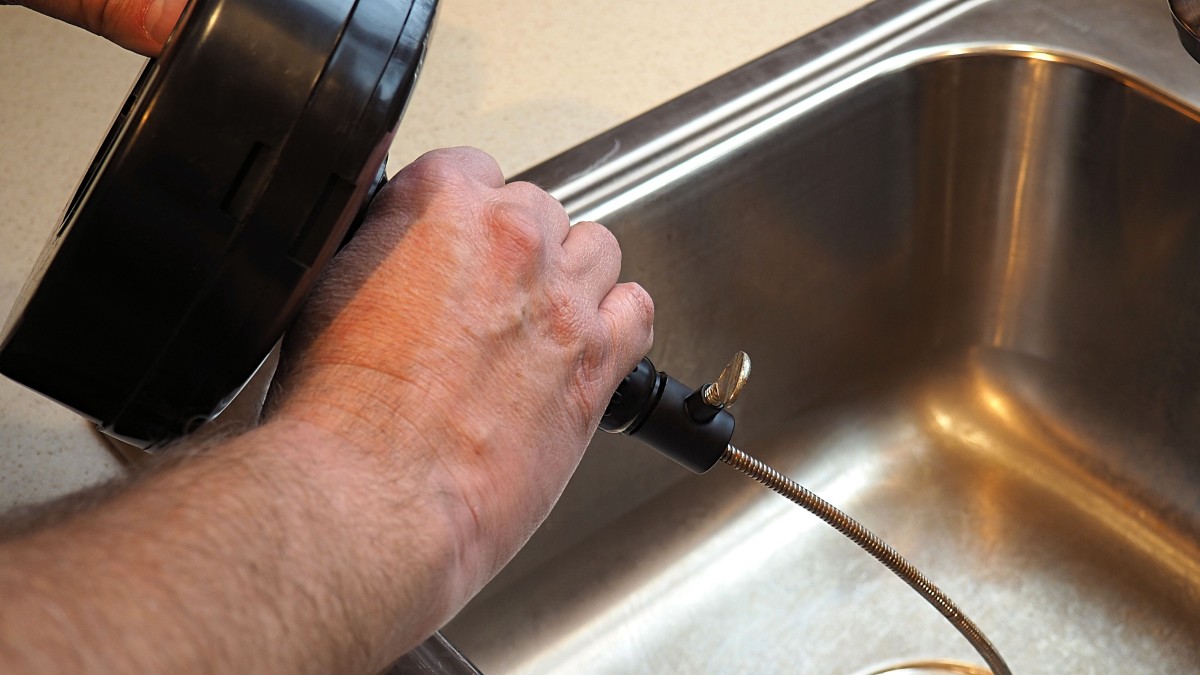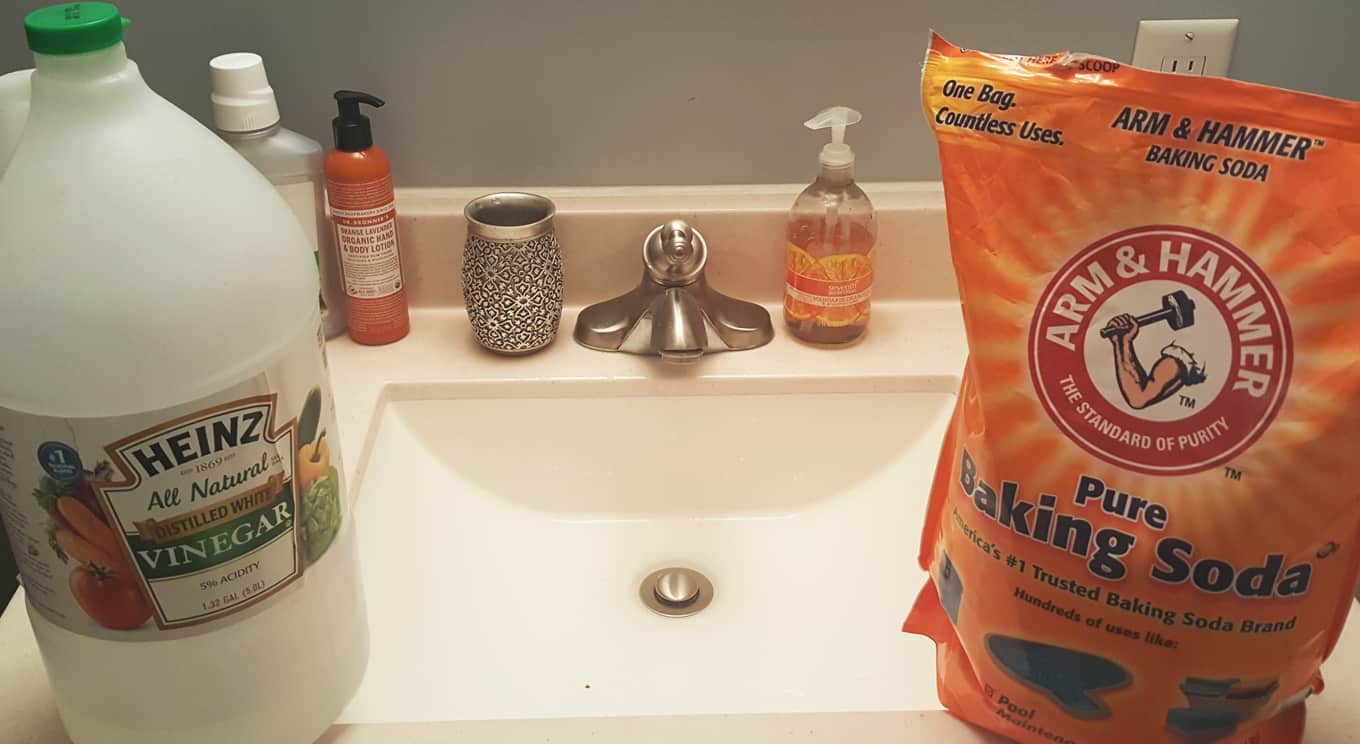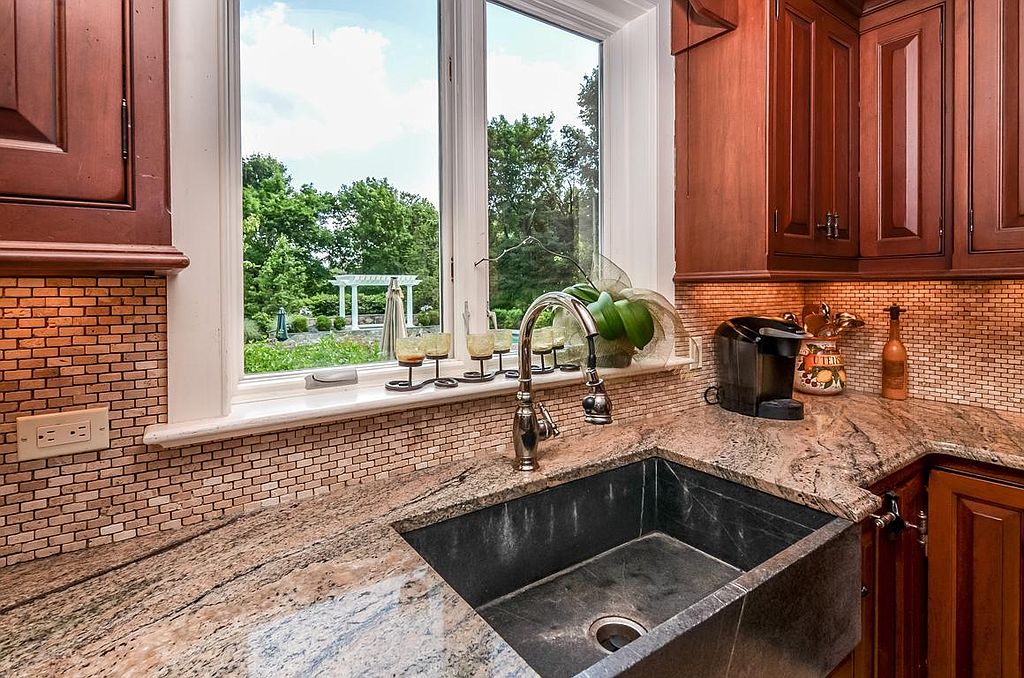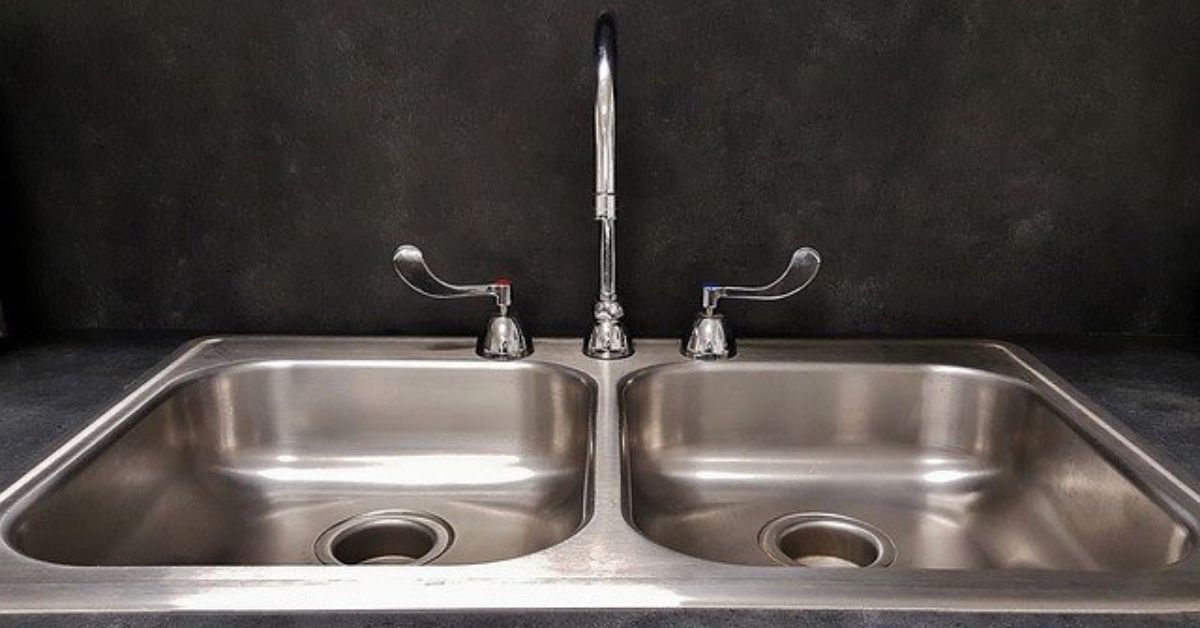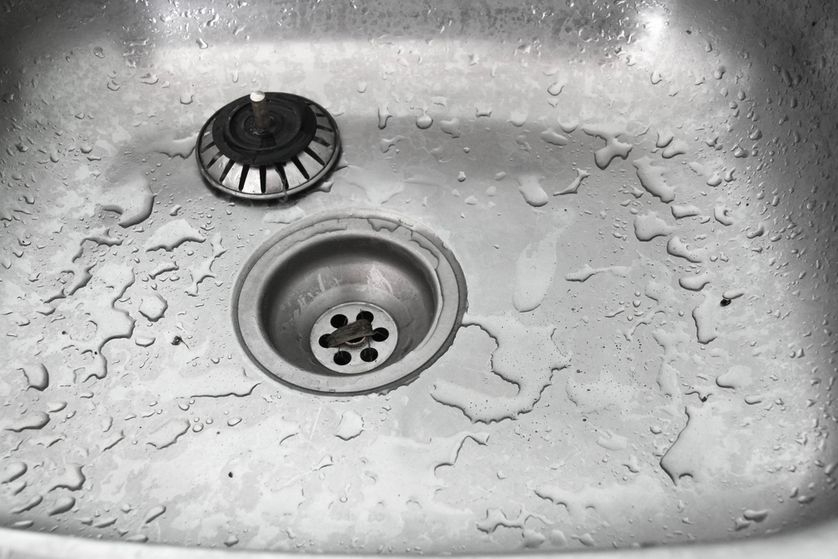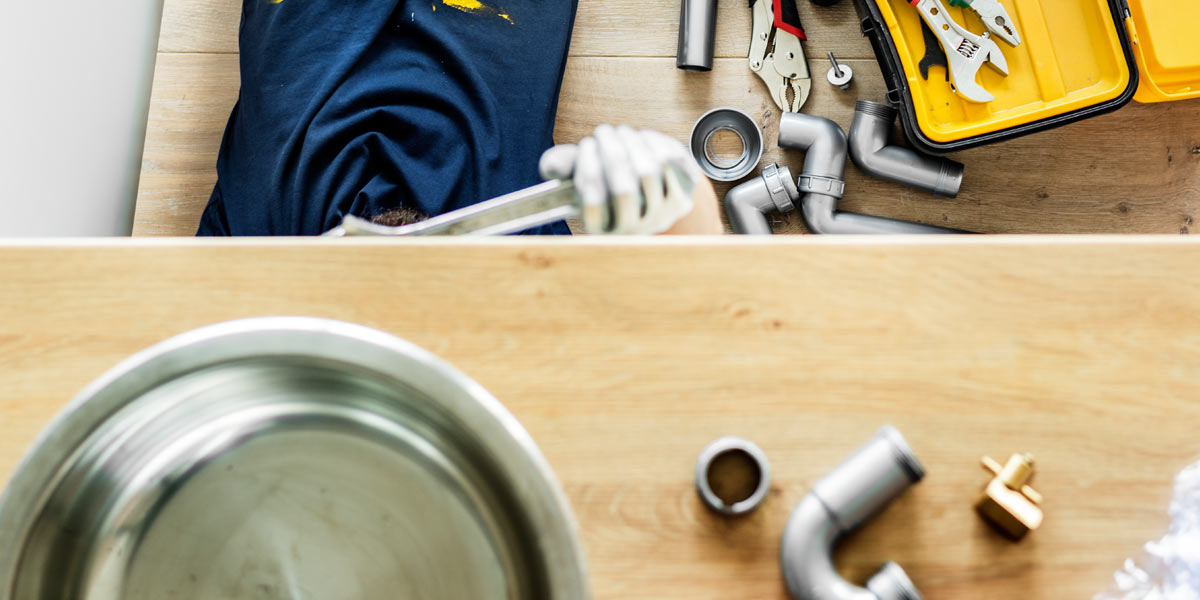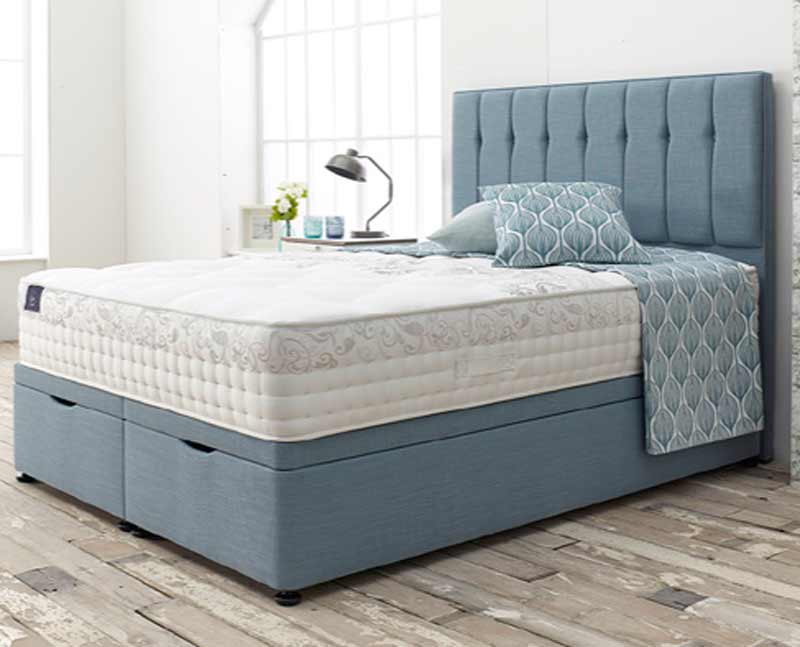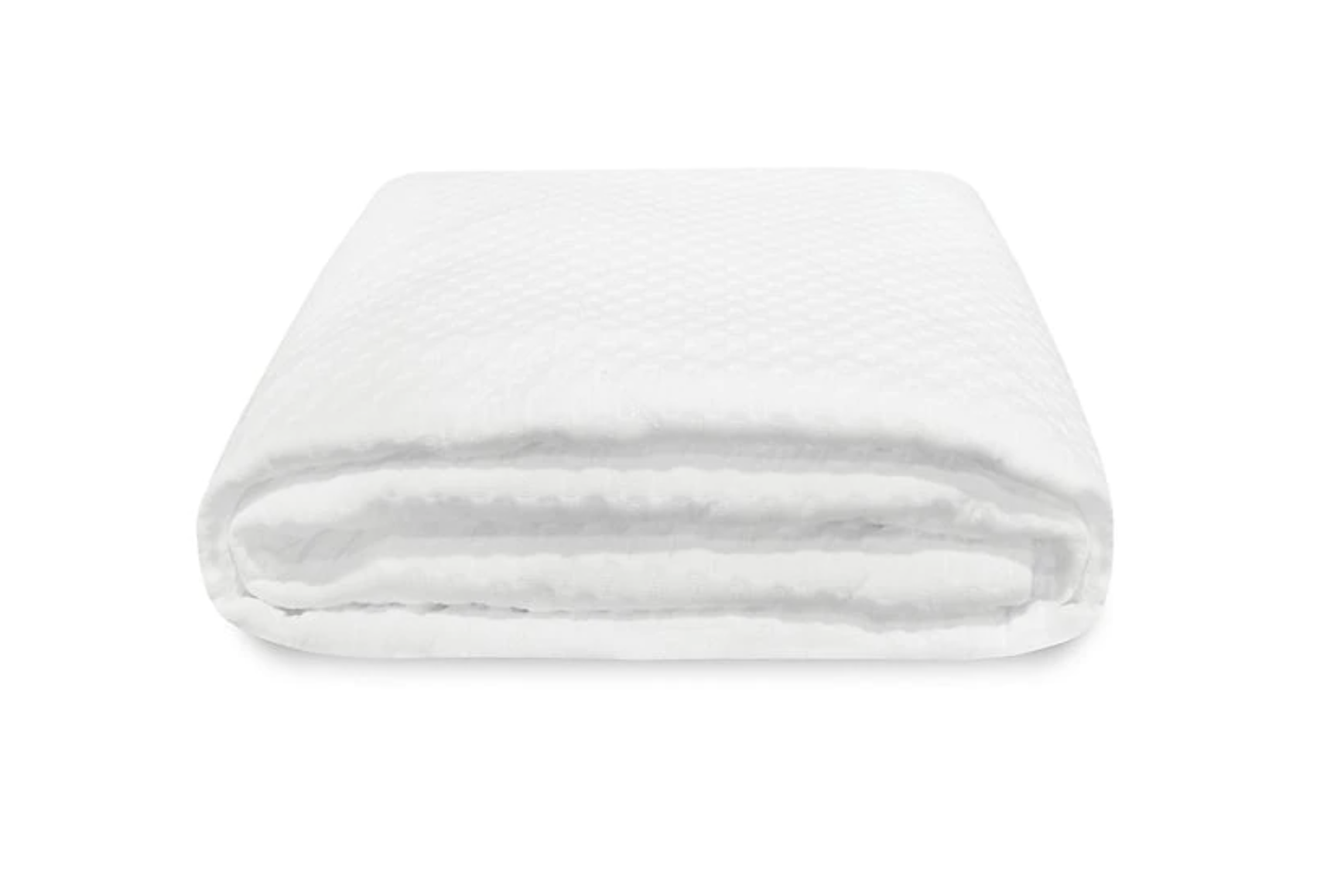A slow-draining kitchen sink can be a frustrating and messy problem to deal with. But before you reach for the phone to call a plumber, try these simple DIY solutions to unclog your kitchen sink and get the water flowing freely again. First, remove any visible debris or food particles from the drain. This may require using a pair of tongs or a small brush to reach down into the drain and remove any blockages. Once you have cleared the visible debris, try running hot water down the drain to see if it improves the flow. If the water is still draining slowly, it's time to try a plunger.Unclog a Kitchen Sink
The first step to fixing a slow-draining kitchen sink is to locate the blockage. In most cases, the blockage will be in the P-trap, which is the curved pipe located under the sink. Place a bucket or bowl underneath the P-trap to catch any water that may spill out while you are working. Using a pipe wrench or pliers, loosen the slip nuts on either side of the P-trap and remove it from the sink. Check for any debris or buildup inside the trap and remove it. Then, reattach the P-trap and run hot water down the drain to test the flow. If the problem persists, it may be time to try a chemical drain cleaner.How to Fix a Slow-Draining Kitchen Sink
Chemical drain cleaners can be an effective way to clear clogs and improve the flow of your kitchen sink. However, they can also be harsh and damaging to your pipes. If you choose to use a chemical drain cleaner, be sure to follow the instructions carefully and use caution. Alternatively, you can create your own natural drain cleaner using household ingredients. A mixture of baking soda and vinegar can work wonders on a slow-draining sink. Simply pour a cup of baking soda down the drain, followed by a cup of vinegar. Let the mixture sit for about 15 minutes, then flush it with hot water.DIY Solutions for a Slow-Draining Kitchen Sink
Understanding the common causes of a slow-draining kitchen sink can help you prevent future clogs and keep your sink running smoothly. One of the most common causes is food particles and grease buildup in the pipes. To prevent this, be sure to run hot water down the drain after each use and avoid pouring grease down the sink. Other causes may include hair and soap residue in the pipes, which can be prevented by using a drain cover to catch any debris before it goes down the drain.Common Causes of a Slow-Draining Kitchen Sink
If you have tried other DIY solutions and are still dealing with a slow-draining kitchen sink, it's time to bring out the plunger. Make sure the sink is filled with enough water to cover the rubber end of the plunger. Then, place the plunger over the drain and push up and down vigorously. This can help dislodge any remaining debris and improve the flow of the sink.How to Use a Plunger on a Kitchen Sink
If a plunger doesn't do the trick, it may be time to try a chemical drain cleaner. These products use powerful chemicals to break down and dissolve blockages in your pipes. When using a chemical drain cleaner, be sure to follow the instructions carefully and use caution as these chemicals can be harmful to your skin and eyes. It's also important to note that chemical drain cleaners may not be effective on all types of clogs, particularly if the blockage is caused by something other than food particles or grease.Chemical Drain Cleaners for a Slow-Draining Kitchen Sink
If you have tried all of the above methods and are still dealing with a slow-draining kitchen sink, it may be time to try snaking the drain. This involves using a long, flexible tool called a plumbing snake to reach down into the pipes and remove any blockages. You can purchase a plumbing snake at most hardware stores and home improvement centers. Be sure to follow the instructions carefully and use caution when handling the snake to avoid damaging your pipes.How to Snake a Kitchen Sink Drain
If you prefer to avoid using harsh chemicals in your kitchen sink, there are several natural remedies you can try to improve the flow of your drain. As mentioned earlier, a mixture of baking soda and vinegar can be effective in breaking down clogs. You can also try using a combination of salt and boiling water, or a mixture of lemon juice and baking soda. These natural remedies may take longer to work than chemical solutions, but they are safer for your pipes and the environment.Natural Remedies for a Slow-Draining Kitchen Sink
The best way to deal with a slow-draining kitchen sink is to prevent it from happening in the first place. Here are a few tips to help keep your sink running smoothly:Preventing a Slow-Draining Kitchen Sink
If you have tried all of the above solutions and are still dealing with a slow-draining kitchen sink, it may be time to call a professional plumber. They will have the tools and expertise to properly diagnose and fix the issue, and can help prevent future clogs. It's also important to call a professional if you notice any other signs of plumbing issues, such as foul odors, gurgling noises, or slow drainage in multiple sinks in your home. Don't let a slow-draining kitchen sink disrupt your daily routine. With these DIY solutions and prevention tips, you can keep your sink running smoothly and avoid the need for costly repairs. Remember to use caution when handling chemicals or plumbing tools, and when in doubt, call a professional for help.When to Call a Professional for a Slow-Draining Kitchen Sink
The Importance of Proper Drainage in Kitchen Sink Design

Why is Proper Drainage Important?
 When designing a kitchen, many homeowners tend to focus on aesthetics and functionality, but often overlook the importance of proper drainage. A
kitchen sink slow to drain
may seem like a minor inconvenience, but it can lead to bigger problems such as clogged pipes and unpleasant odors.
Proper drainage
is crucial in maintaining a clean and hygienic kitchen, as well as preventing costly plumbing issues.
When designing a kitchen, many homeowners tend to focus on aesthetics and functionality, but often overlook the importance of proper drainage. A
kitchen sink slow to drain
may seem like a minor inconvenience, but it can lead to bigger problems such as clogged pipes and unpleasant odors.
Proper drainage
is crucial in maintaining a clean and hygienic kitchen, as well as preventing costly plumbing issues.
The Role of Sink Design in Drainage
 Believe it or not, the design of your kitchen sink plays a significant role in drainage. A
properly designed sink
should have a
slight slope towards the drain
, allowing water and food particles to flow easily.
Deep sinks
with a steep decline towards the drain may look stylish, but they can cause water to pool and create a breeding ground for bacteria. On the other hand,
shallow sinks
with a flat bottom can also impede drainage, leading to a
kitchen sink slow to drain
.
Believe it or not, the design of your kitchen sink plays a significant role in drainage. A
properly designed sink
should have a
slight slope towards the drain
, allowing water and food particles to flow easily.
Deep sinks
with a steep decline towards the drain may look stylish, but they can cause water to pool and create a breeding ground for bacteria. On the other hand,
shallow sinks
with a flat bottom can also impede drainage, leading to a
kitchen sink slow to drain
.
Factors to Consider in Sink Design
 When designing your kitchen sink, there are several factors to keep in mind to ensure proper drainage.
The size and shape of the sink
are important considerations, as well as the
placement of the drain
. Opting for a
single bowl sink
with a
central drain
can be more efficient than a
double bowl sink with drains on either side
. Additionally,
choosing a drain with a larger diameter
can also improve drainage.
When designing your kitchen sink, there are several factors to keep in mind to ensure proper drainage.
The size and shape of the sink
are important considerations, as well as the
placement of the drain
. Opting for a
single bowl sink
with a
central drain
can be more efficient than a
double bowl sink with drains on either side
. Additionally,
choosing a drain with a larger diameter
can also improve drainage.
Additional Tips for Proper Drainage
 Aside from sink design, there are other steps you can take to ensure
proper drainage
in your kitchen sink.
Regularly cleaning and maintaining your drain
can prevent buildup and clogs. Installing a
garbage disposal
can also help break down food particles and keep your drain clear. It is also recommended to
avoid pouring fats, oils, and grease down the drain
, as they can solidify and cause blockages.
In conclusion,
proper drainage
is a crucial aspect of
kitchen sink design
that should not be overlooked. By considering the design, size, and placement of your sink, as well as implementing proper maintenance techniques, you can prevent a
kitchen sink slow to drain
and maintain a clean and functional kitchen. Don't forget to consult a professional plumber for any major drainage issues to ensure the longevity of your kitchen sink.
Aside from sink design, there are other steps you can take to ensure
proper drainage
in your kitchen sink.
Regularly cleaning and maintaining your drain
can prevent buildup and clogs. Installing a
garbage disposal
can also help break down food particles and keep your drain clear. It is also recommended to
avoid pouring fats, oils, and grease down the drain
, as they can solidify and cause blockages.
In conclusion,
proper drainage
is a crucial aspect of
kitchen sink design
that should not be overlooked. By considering the design, size, and placement of your sink, as well as implementing proper maintenance techniques, you can prevent a
kitchen sink slow to drain
and maintain a clean and functional kitchen. Don't forget to consult a professional plumber for any major drainage issues to ensure the longevity of your kitchen sink.
/plumber-unclogging-kitchen-sink-169270382-5797a9355f9b58461f27f024.jpg)






:max_bytes(150000):strip_icc()/how-to-unclog-a-kitchen-sink-2718799_sketch_FINAL-8c5caa805a69493ab22dfb537c72a1b7.png)


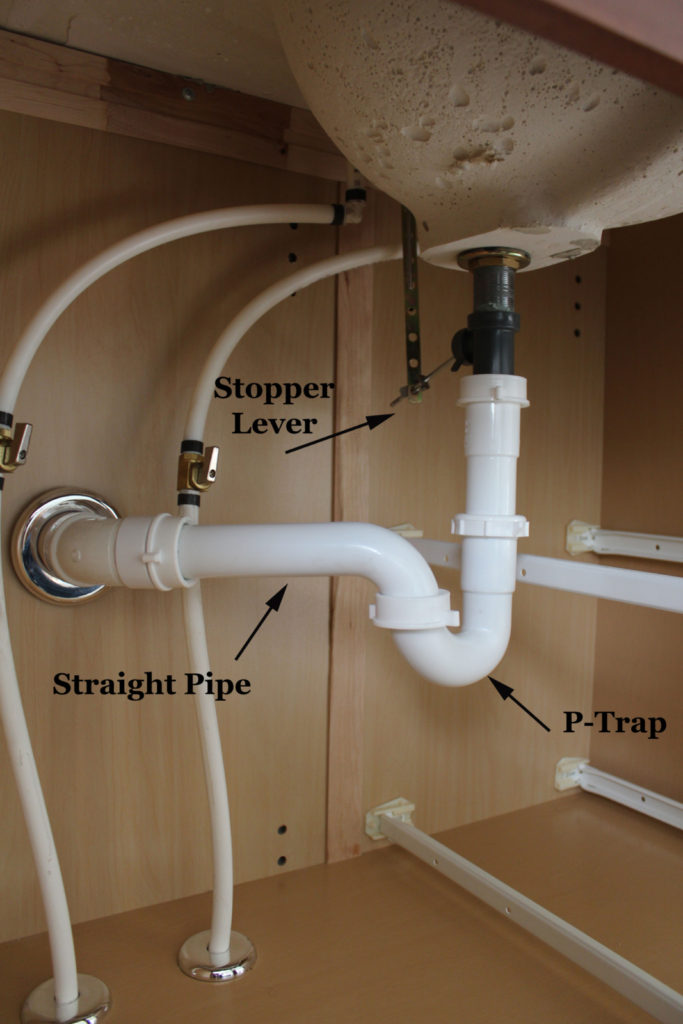
























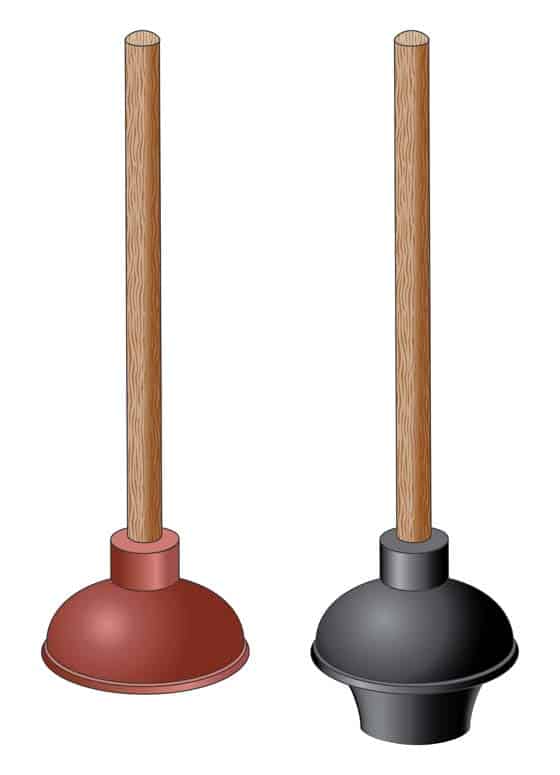
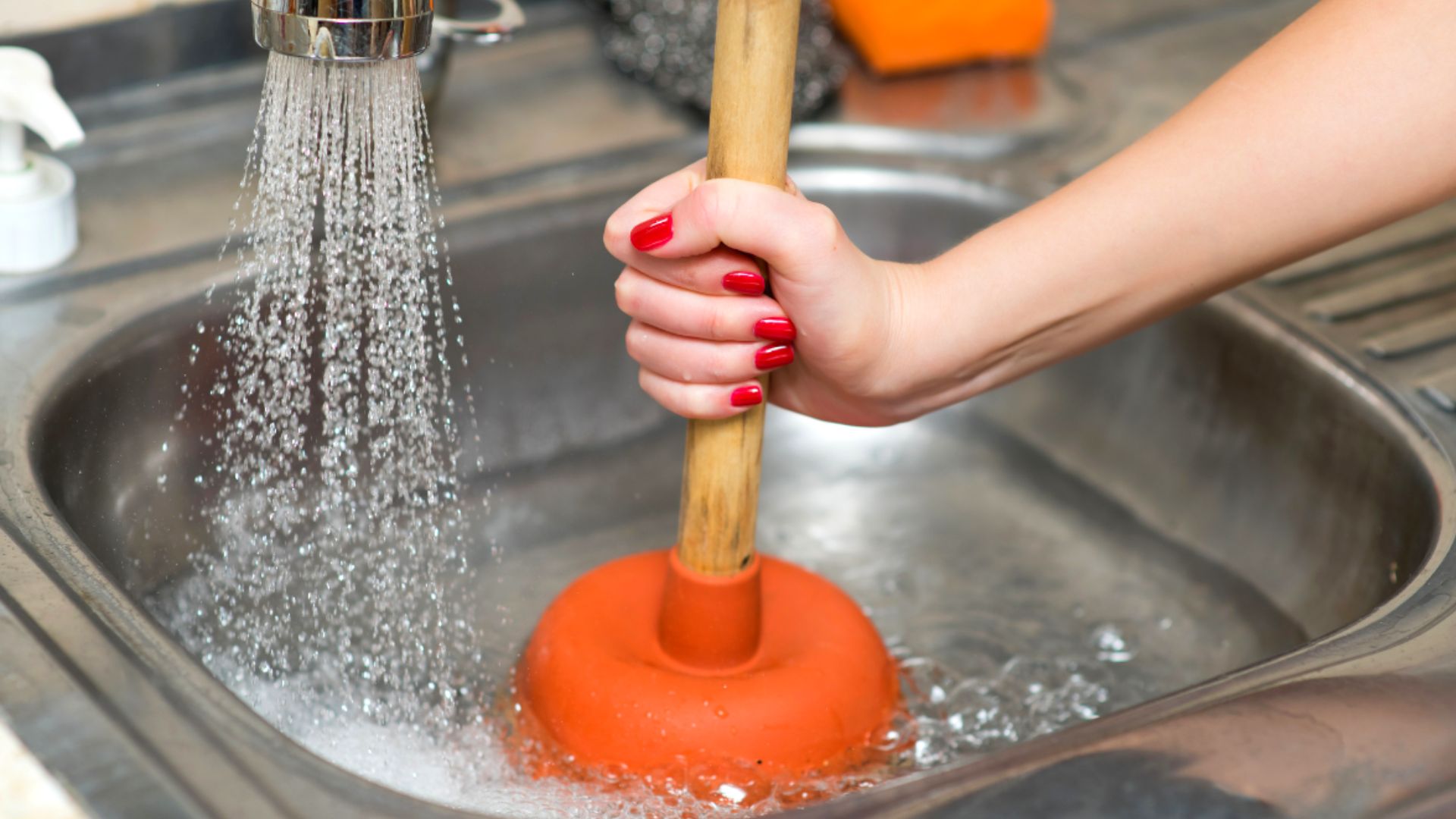

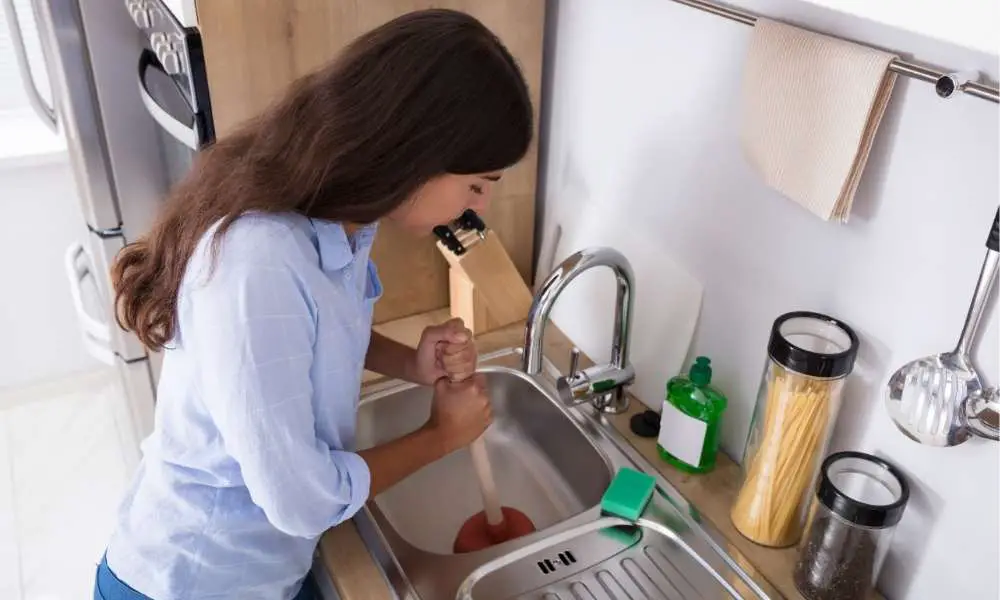
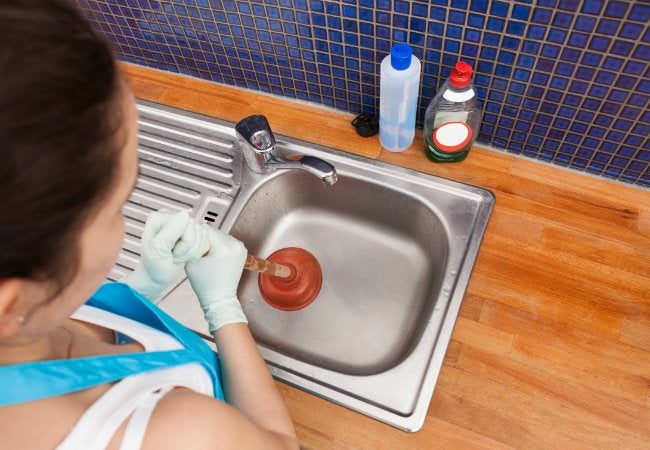
/woman-wearing-yellow-washing-up-gloves-to-unblock-sink-using-plunger-close-up-131987463-5887cfc03df78c2ccd92ec9e.jpg)

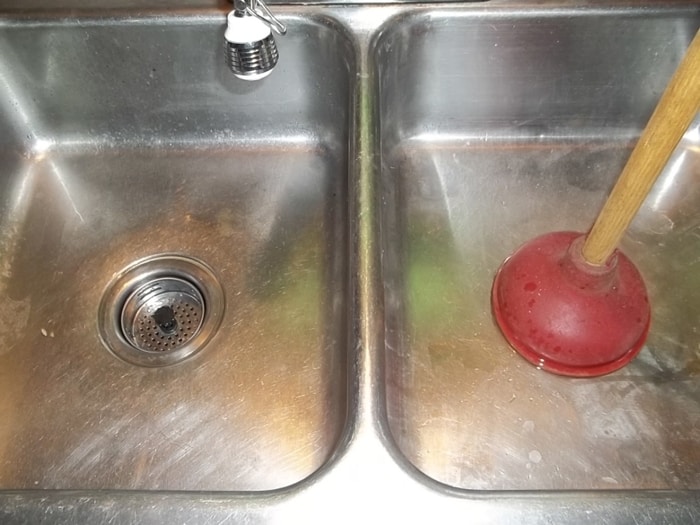





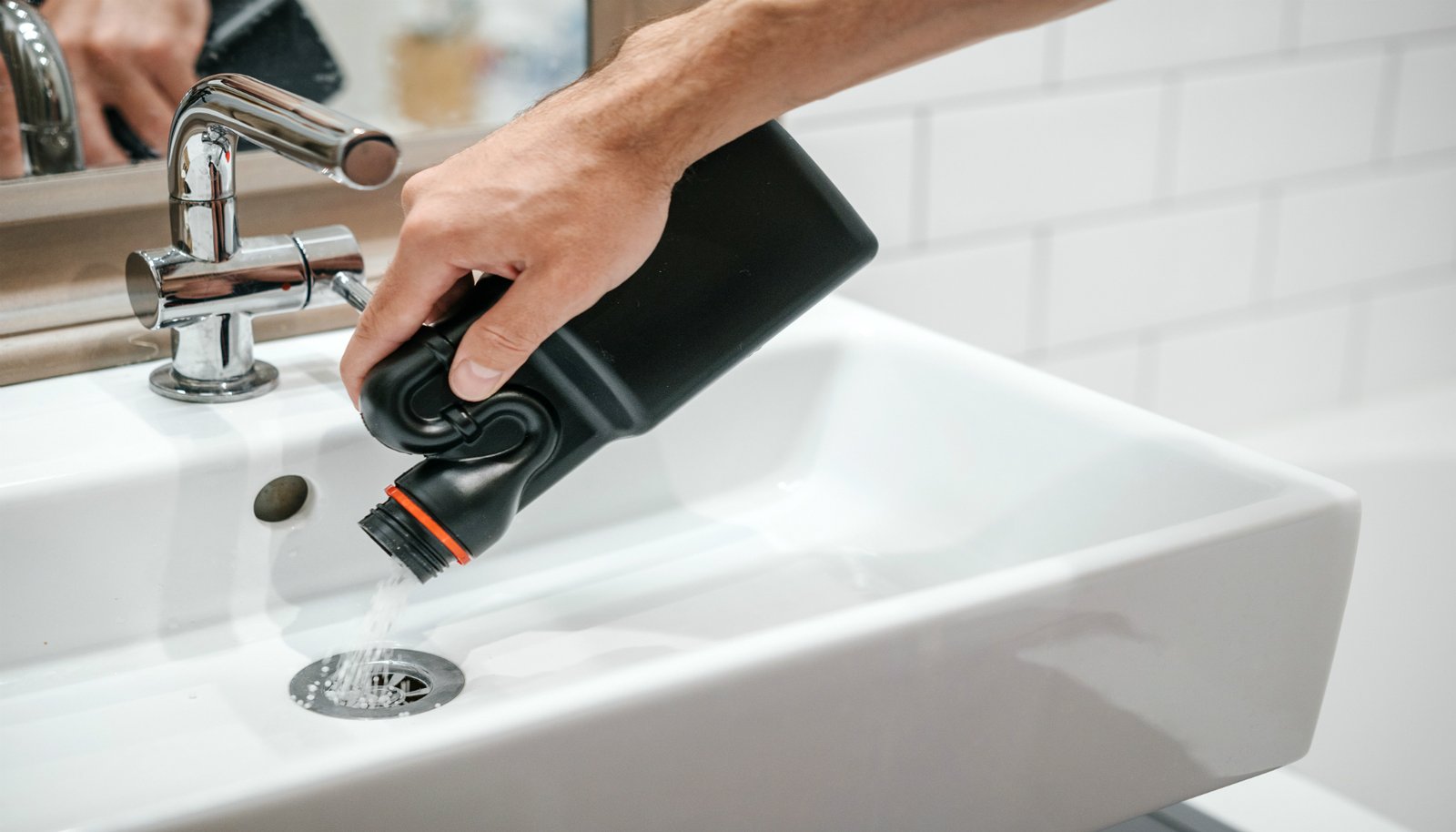
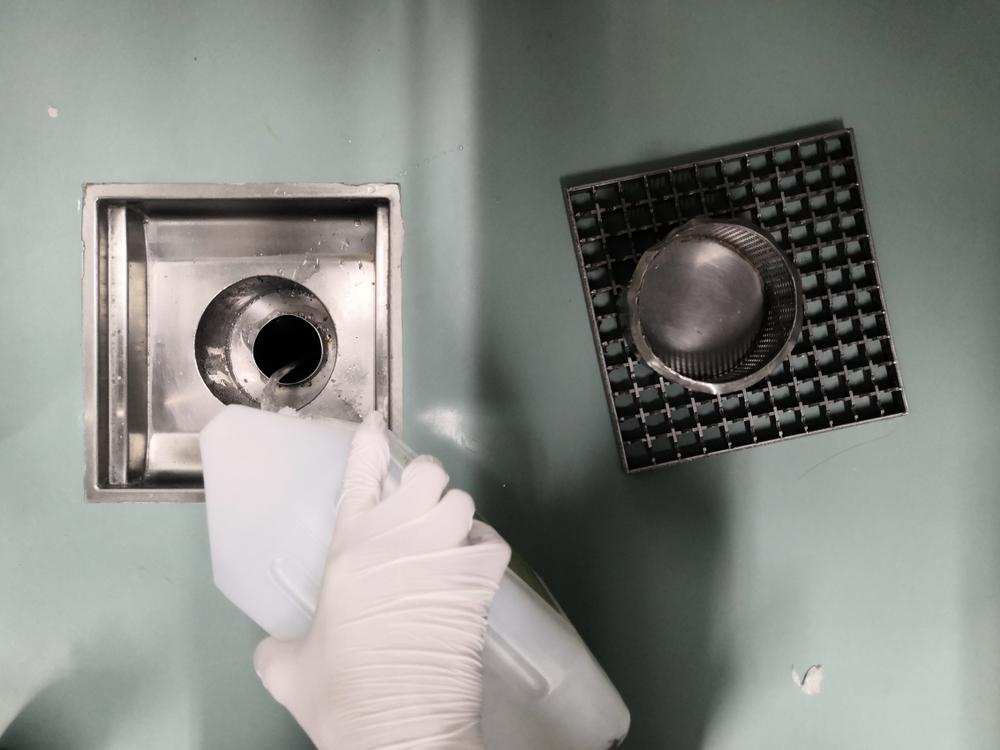


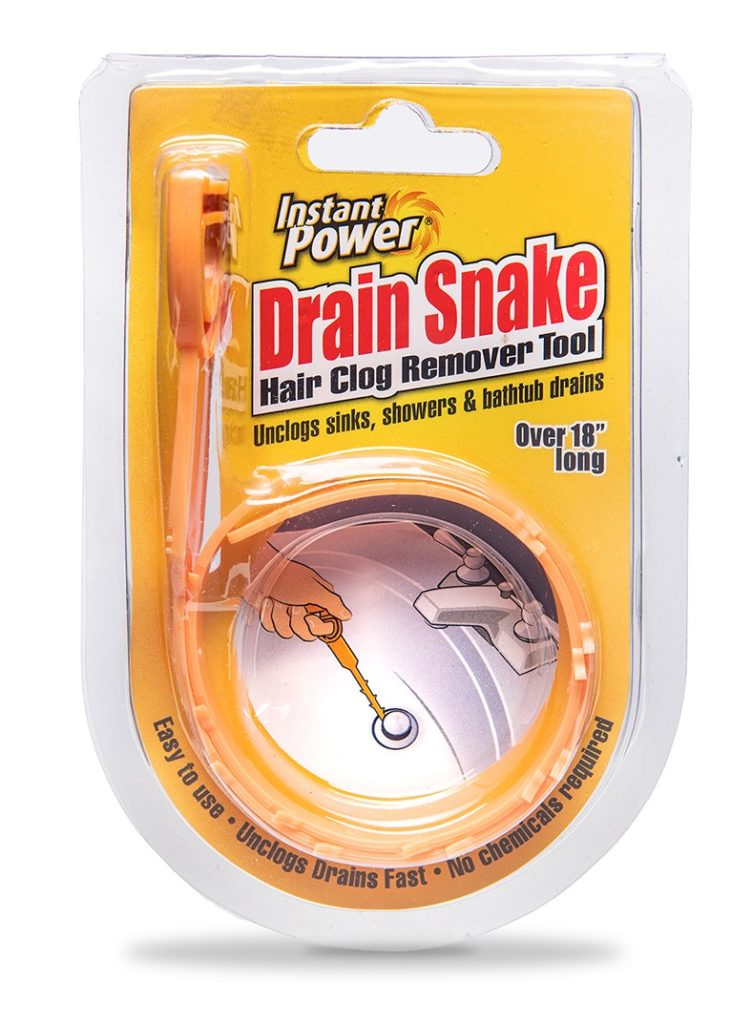


/DrainSnake-c4efd6c0f57e4994a171a4b2f2463059.jpg)

